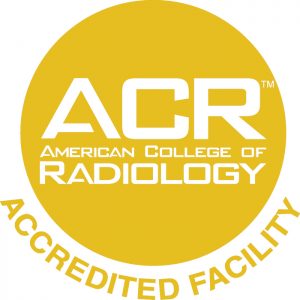Our Services
Computer Connectivity with Area Physicians
Imaging studies performed at Cayuga Health facilities are digital and appear on a computer monitor (instead of film). Immediately after imaging studies are completed, they are sent directly to our PACS (picture archival and communication system) and a radiologist receives electronic notification that the study is ready for review. The result is fast, comprehensive care. For patients awaiting potentially worrisome news, faster care is more compassionate care.
Here’s how it works.
- Our radiologists use a state-of-the-art voice recognition system, which is extremely efficient and eliminates the need for transcription. This enables them to view patients’ images right away and dictate their reports, which appear on the screen next to the images
- Depending on the particular imaging study, referring doctors may receive test results the same day, usually within two to four hours of when the study is done.
- Via a secure Internet connection, our referring doctors can view their patients’ imaging studies and the radiologist reports in their offices.
Electronic Consultation
You can request that copies of your imaging study be sent elsewhere, in the event you are relocating or you are seeking a second opinion from one of our affiliates or other major medical center. Your studies can be sent electronically or can be provided to you on a CD to carry with you.
Diagnostic Imaging Services: Offering the Full Spectrum
Cayuga Health offers the most comprehensive array of imaging technology in the region. The following is a summary of our imaging capabilities, including a brief explanation of what each imaging method is and when it is recommended.
You can also obtain detailed information on specific imaging exams, what to expect, and how to prepare for your own imaging exam by clicking on Patient Information on Imaging Exams.
Women’s Imaging
Interventional Care
Interventional care comprises exams that require either the introduction of a contrast medium into the bloodstream or an invasive procedure that requires a brief recuperation period. These studies highlight blood vessels, various body organs, and the spinal cord and canal. Image-guided biopsies guide the radiologist or surgeon quickly and accurately to the tissue in question. Our Philips Digital Interventional Angiography Suite features real-time 3-D modeling capabilities, giving us several significant advantages in manipulating catheters to sites of pathology.
Interventional Modalities
Multidisciplinary Thyroid Nodule Clinic
Approximately eight percent of all thyroid nodules are cancerous, and yet, in typical medical communities, completing the diagnostic work-up can take weeks. Cayuga Health has established the Multidisciplinary Thyroid Nodule Clinic, which meets twice a month.
ACCREDITATIONS
The Department of Imaging Services is accredited by two independent national organizations, The Joint Commission and the American College of Radiology. To achieve accreditation from these two distinguished health-care organizations, Imaging Services undergoes extensive, in-depth reviews that evaluate every single aspect of care. No stone is left unturned.
Our shared goal with The Joint Commission and the American College of Radiology is to ensure that our patients consistently experience the safest, highest quality, best-value care in all of our patient-care facilities.
RESOURCES
what our patients are saying
“The staff and accommodations at Cayuga Birthplace are amazing!!! This is what it I imagine it would feel like to be a celebrity getting VIP treatment. I wish I could stay longer – even the food options are 5 Star! The amenities are great. Everything is clean and designed beautifully. Not a single complaint, only praises!”
“I have been a Hemo dialysis patient for almost Five years. Prior to dialysis and during dialysis I have had several trips to the ER, due to other health issues & was admitted to CMC more than a few times. Each and every time I’ve been there, whether in patient or out, I have been treated with respect, professionalism, and efficiency. I give this hospital 2 thumbs up!! Thank you CMC for taking care of me all these years!!”
“I have to say the last couple visits that I’ve had here have been wonderful. About a month ago I had an EGD and the staff were amazing! Explained everything in detail and made me feel at ease. I was very nervous and the nurse I had was very comforting. Tonight we had to take my son to the emergency room and they were awesome with him! We got right in. “
“I have had many occasions visiting CMC for myself and family. We have never had a bad experience there at all. Last October I had surgery and the nurses were amazing especially my night nurse. Thank you to all CMC staff for doing what you do every day with a smile.”

 Accreditation and certification by The Joint Commission is recognized nationwide as a symbol of quality and reflects Cayuga Medical Center’s commitment to meeting certain performance standards. The stated mission of The Joint Commission is to continuously improve health care for the public by evaluating health-care organizations and inspiring them to excel in providing safe and effective care of the highest quality and value.
Accreditation and certification by The Joint Commission is recognized nationwide as a symbol of quality and reflects Cayuga Medical Center’s commitment to meeting certain performance standards. The stated mission of The Joint Commission is to continuously improve health care for the public by evaluating health-care organizations and inspiring them to excel in providing safe and effective care of the highest quality and value.
